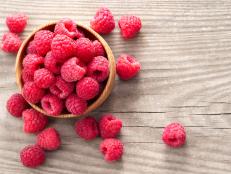Why You Need Vitamin C
You may be familiar with vitamin C's immune health benefits from the variety of fizzy drink tablets and supplements available on store shelves during cold and flu season, but this essential nutrient is also a potent antioxidant, helping to protect our cells from the daily free radical damage we encounter as a result of basic metabolic functions like eating and exercising, and environmental stressors like cigarette smoke, sun exposure and pollution, according to a recent article in the scientific Pharmacognosy Review. In order to offset free radicals before they can cause oxidative damage to nearby cells and tissues, aim to consume at least the full recommended daily intake of 90 mg for adult men and 75 mg for adult women, according to the National Institutes of Health. Each of the colorful foods in this list will provide almost the full (or well above!) daily vitamin C dose, and bonus — they're delicious, too!











